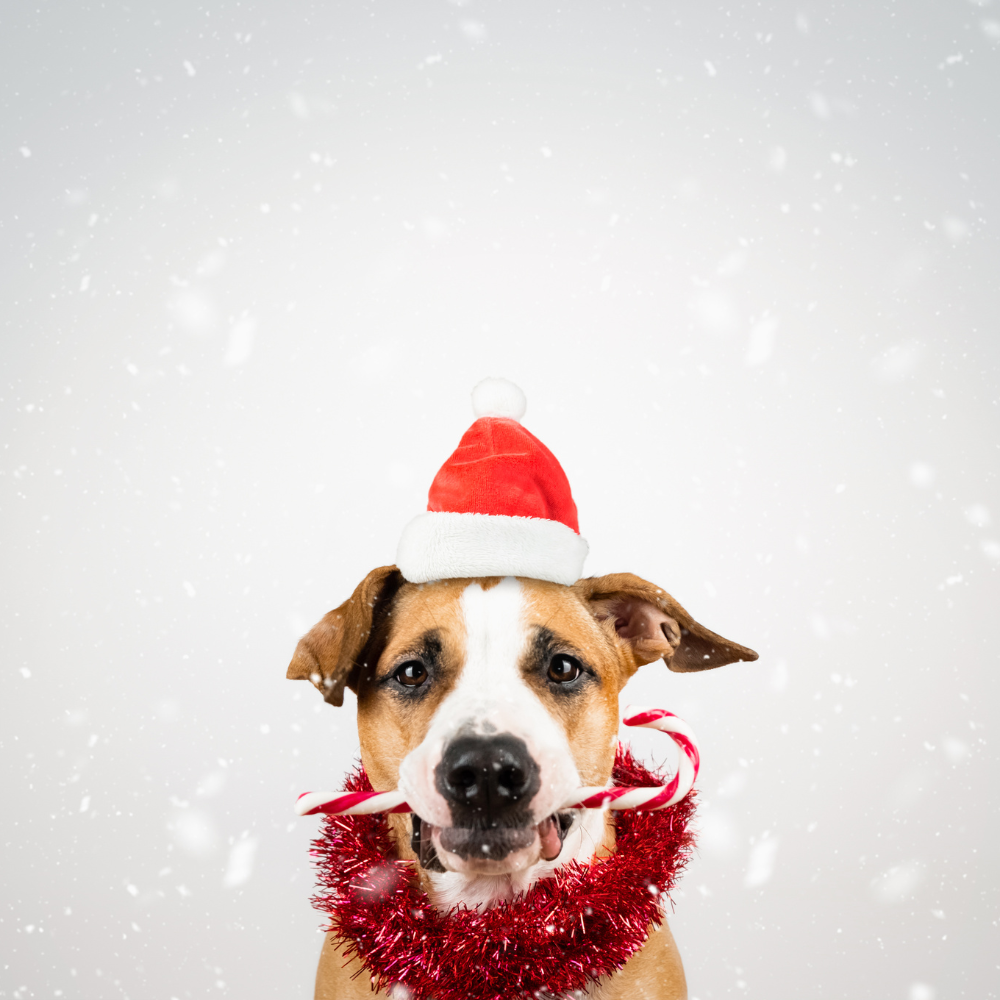Whether you are hosting this year’s festivities, or taking your animal with you to visit others, here are some top tips to make sure your cats and dogs enjoy the festivities as much as you do. With just a little bit of planning and mindfulness, you can ensure your four-legged friend remains stress-free and full of Christmas spirit!
Create a Safe Space
Not all animals are social butterflies. In fact, even the most confident and outgoing animals still require ‘time out’ to chill and regulate their nervous system. If your cat or dog is not used to lots of visitors in your home; or is unsure when visiting new environments, then they may experience stress around these changes. It is quite normal for animals to feel like their personal space is being invaded, therefore it is important to think ahead, and create a safe, quiet space for them to retreat to when the festivities become just a bit too much for them.
Animals that are particularly sensitive to sound may suffer from sensory overload around large gatherings, and will naturally want to gravitate to a quiet, darker area to decompress. Creating this space ahead of time will help support your animal in a way that meets their needs.
Respecting Boundaries
Many dogs (and some cats), thrive on the affection they receive from guests. However, some animals find the extra attention a bit overwhelming. Even the most affectionate of animals may tire from being picked up and handled by visitors all day, therefore create some boundaries that support your animal when they are helpless to do so themselves.
An example of a good boundary would be simply requesting that your visitors do not interrupt your cat or dog when they are sleeping or resting, especially when in their safe space.
It may be necessary to establish boundaries and guidelines if there are children around your animal. Young children are naturally inquisitive and are immediately drawn to the playful energy of animals; but they can also be unpredictable in their movements and may be unaware of the fragility and sensitivity of animals. Help children have respectful interactions with your animal, that not only supports your animal’s boundaries, but also teaches children to be mindful of the personal space required around animals.
Stick to the Routine
Cats and dogs are creatures of habit. Even though your daily routine may be completely out of sorts during the holidays, your animal’s stress can be greatly reduced by sticking to their particular routine. Try and provide meals at the same time each day to help keep their digestive system regular.
Exercising your dog every day at a similar time will help release nervous tension and tire them out, making them less boisterous around guests.
Avoiding Dangers
With so much going on for you over the holidays, pre-empting and managing potential dangers and issues will help give you peace of mind, helping you relax and enjoy the festivities.
Remove all dangerous Christmas tree decorations, especially glass ornaments that could smash and cut paws. If you have an animal that likes to chew on novelty decorations, remove the most accessible ones ahead of guests arriving. Rest assured, your animal will take advantage of you being distracted and see the perfect opportunity to get into mischief!
If you are taking your animal with you to visit people over the holidays, make sure your animal has an ID tag and that the information is up todate, to prevent them becoming lost. Enforcing rules that help keep your animal safe are very important e.g. keep the gate closed, and don’t walk the dog without permission.
Food actually presents one of the biggest dangers for cats and dogs at this time of year, so stay extra vigilant and ensure everyone follows your rules around what your animal can and can’t eat. Although it can be tempting to feed your animal scraps of food, rich and fatty foods can play havoc with their digestive system.
Grapes, raisins and chocolate are all toxic to dogs, so be mindful to keep them out of reach.
Stay safe these holidays and enjoy the special time you spend with your loved ones.
Claire Forsyth, BSc, Specialist Animal Kinesiologist
